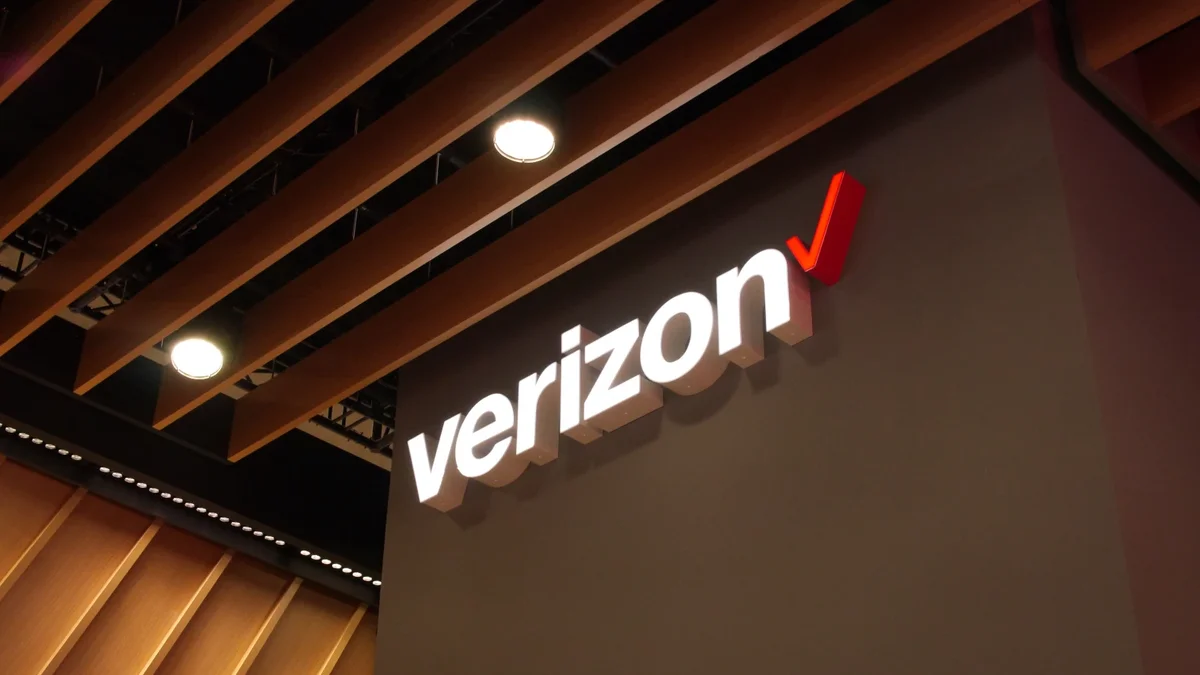Introduction
In recent months, Verizon layoffs have become a critical topic in the business world, particularly in telecommunications. As one of the largest and most influential telecom companies, Verizon’s decision to reduce its workforce has sparked widespread attention and debate. This article delves into the reasons behind these layoffs, their scope, and their impact on various stakeholders. By examining the economic, technological, and social factors involved, we aim to understand this significant corporate move and its broader implications comprehensively.
Scope and Scale of Verizon Layoffs
The magnitude of the Layoffs
Verizon’s recent layoffs are substantial, involving thousands of employees across various departments. The company’s workforce reduction is part of a broader strategy to streamline operations and enhance efficiency. This move is expected to impact a significant portion of Verizon’s staff, reflecting its commitment to restructuring its operations.
Specific Departments and Roles Affected
The Verizon layoffs are not confined to a single department but span several key areas. Customer service, network operations, and administrative functions have been particularly affected. The shift towards automation and digital solutions has reassessed roles traditionally filled by human employees. For instance, automated systems are increasingly replacing customer service roles, and network operations are becoming more reliant on technological solutions.
Timeline and Announcement Phases
Verizon layoff timeline has been carefully managed, with initial announcements made several months before the full implementation. This phased approach allows the company to handle the transition more smoothly and gives employees time to prepare for the changes. The announcement process involved internal communications and public disclosures, aiming to balance transparency with sensitivity.
Factors Leading to Verizon Layoffs
Economic Pressures and Market Realities
Economic factors have significantly influenced Verizon’s decision to lay off employees. The company faces pressures from inflation, supply chain disruptions, and other economic challenges that necessitate cost-cutting measures. By reducing its workforce, Verizon aims to manage these pressures more effectively and maintain financial stability.
Technological Changes and Automation
Technological advancements are another key factor behind the layoffs. Integrating automation and artificial intelligence has streamlined operations and reduced the need for specific job functions. For example, automated systems for network management and customer service have decreased reliance on manual processes, impacting jobs in these areas.
Shifts in Consumer Preferences and Industry Dynamics
Consumer preferences shift towards digital and self-service options, influencing Verizon’s workforce strategy. As customers increasingly favour online interactions, Verizon focuses on enhancing its digital platforms and reducing reliance on traditional customer service channels. This shift has led to a realignment of resources and decreasing roles supporting traditional methods.
Economic and Social Impact of Verizon Layoffs
Effects on Local Economies and Communities
The layoffs have had a noticeable impact on local economies, especially in regions where Verizon is a significant employer. Losing jobs can lead to decreased consumer spending and negatively affect local businesses. Communities dependent on Verizon’s presence may need help with economic challenges as displaced employees seek new opportunities.
Broader Economic Consequences
On a broader scale, Verizon layoffs contribute to the overall unemployment rate and economic uncertainty. The ripple effects extend beyond the immediate impact on affected employees, influencing market confidence and financial stability. As a significant player in the telecommunications industry, Verizon’s decisions affect the broader economy.
Impact on Stock Market and Investor Confidence
The stock market has responded to Verizon’s layoffs with varying confidence levels. While cost-cutting measures may improve short-term financial metrics, investors are concerned about the long-term growth potential. The market’s reaction underscores Verizon’s need to balance immediate financial benefits with sustainable growth prospects.
Verizon’s Communication and Management Strategy
Internal Communication and Employee Reactions
Effective internal communication has been essential in managing the impact of the layoffs. Verizon’s approach has involved providing clear information to employees about the reasons for the layoffs and the support available. Employee reactions have varied, with some expressing frustration and others understanding the necessity of the changes.
External Messaging and Media Coverage
Externally, Verizon has faced scrutiny from the media and public stakeholders. The company’s messaging has emphasized restructuring to align with future growth areas, such as 5G technology and digital services. Media coverage has highlighted the challenges employees face and the strategic rationale behind the layoffs.
Crisis Management and Public Relations
Verizon’s crisis management strategy has focused on maintaining a positive brand image while addressing the challenges of the layoffs. This includes engaging with media, stakeholders, and the public to clarify the company’s position and plans. Practical public relations efforts mitigate negative perceptions and maintain stakeholder trust.
Employee Experiences and Stories
Personal Accounts and Testimonies
The personal stories of employees affected by the layoffs provide a human perspective. Many employees have shared their experiences, reflecting on the emotional and practical challenges of losing their jobs. These testimonies highlight the diverse impacts of the layoffs on individuals and their families.
Psychological and Emotional Impact
The psychological impact of layoffs can be profound, leading to stress, anxiety, and uncertainty. Verizon has recognized the importance of addressing these issues and offering support services to help employees cope with the transition. Mental health resources and counselling services are essential in assisting individuals through this challenging period.
Career Transition and Retraining Opportunities
For those affected, career transition and retraining opportunities are vital. Verizon has provided resources for job placement and career counselling to help employees navigate the job market. These initiatives aim to support individuals in finding new opportunities and adapting to a changing employment landscape.
Verizon’s Future After Layoffs
Strategic Repositioning and Business Focus
Following the layoffs, Verizon focuses on strategic repositioning to drive future growth. To remain competitive, the company’s efforts are centred around investing in emerging technologies, such as 5G and digital services. This strategic focus aims to enhance Verizon’s market position and drive long-term success.
Investment in Emerging Technologies
Verizon’s investment in emerging technologies is a crucial aspect of its post-layoff strategy. The company is allocating resources towards advancements in 5G, artificial intelligence, and digital infrastructure. These investments are intended to position Verizon at the forefront of technological innovation and meet evolving customer demands.
Potential for Future Hiring or Additional Layoffs
While the immediate focus is on managing the current layoffs, there is also the potential for future hiring or additional layoffs. The industry’s dynamic nature and ongoing technological advancements may lead to further workforce adjustments. Verizon will need to assess its staffing needs and make strategic decisions accordingly continuously.
Legal and Ethical Considerations
Compliance with Employment Laws and Regulations
Verizon’s layoffs must comply with employment laws and regulations, ensuring compliance with legal requirements. This includes providing appropriate notice periods and severance packages and adhering to regulations governing workforce reductions. Legal compliance is essential in mitigating potential disputes and maintaining regulatory standards.
Ethical Considerations in Workforce Reduction
Ethical considerations play a significant role in the decision-making process for layoffs. Verizon must balance business needs with the impact on employees and their families. Transparent communication, fair treatment, and supporting resources are critical in addressing ethical concerns associated with workforce reductions.
Long-Term Implications for Corporate Governance
The long-term implications of layoffs extend to corporate governance practices. Companies must consider how workforce reductions align with their broader corporate values and social responsibilities. Verizon’s approach to managing layoffs can influence perceptions of its commitment to ethical practices and corporate responsibility.
Support Systems for Affected Employees
Severance Packages and Benefits Overview
Verizon has implemented severance packages and benefits to support employees affected by the layoffs. These packages typically include financial compensation, continuation of healthcare benefits, and other support measures. The goal is to provide a safety net for individuals during their transition to new employment.
Job Placement and Career Counseling Services
Job placement and career counselling services are integral to helping laid-off employees find new opportunities. Verizon offers resources such as resume workshops, interview preparation, and job search assistance. These services aim to equip individuals with the tools and support needed to secure new positions.
Community Support and Networking Opportunities
Community support and networking opportunities are valuable for laid-off employees seeking to connect with others in similar situations. Verizon facilitates networking events and community resources to help individuals build professional connections and access additional support.
Public Perception and Brand Impact
Customer Loyalty and Trust
Customer reactions to Verizon’s layoffs can impact brand loyalty and trust. While some customers may empathize with the company’s need for restructuring, others may feel uncertain about the implications for service quality and customer support. Maintaining customer trust during this period is crucial for Verizon’s continued success.
Social Media Sentiment and Public Discourse
Social media sentiment has played a significant role in shaping public perceptions of Verizon’s layoffs. Online discussions reflect various opinions, from support for the company’s strategic decisions to criticism of the impact on employees. Managing social media interactions is essential for maintaining a positive brand image.
Long-Term Brand Image Considerations
The long-term impact on Verizon’s brand image will depend on how effectively the company manages the aftermath of the layoffs. Commitment to employees, customers, and communities will be vital in rebuilding and reinforcing the brand’s reputation.
Industry-Wide Implications
Competitor Reactions and Market Shifts
Verizon’s layoffs may influence competitor strategies and market dynamics. Competitors may seize the opportunity to attract displaced employees or customers, leading to shifts in market share and competitive positioning. Verizon’s approach to restructuring and its impact on the telecom sector will shape the broader industry response.
Broader Trends in Telecommunications
Verizon’s layoffs are part of a broader trend in the telecommunications industry towards consolidation and digital transformation. Companies across the sector are adapting to technological advancements and changing consumer behaviours, leading to similar workforce adjustments and strategic realignments.
Impact on Workforce Trends and Employment Practices
The layoffs reflect broader trends in workforce management and employment practices. As companies increasingly rely on automation and digital solutions, traditional job roles are evolving. This shift necessitates focusing on workforce retraining and adaptation to new employment paradigms.
Lessons Learned and Future Directions
Critical Takeaways for Other Corporations
Other corporations can learn valuable lessons from Verizon’s experience with layoffs. Key takeaways include:
- The importance of transparent communication.
- Providing affected employees and alignment.
- Aligning decisions with long-term strategic goals. Learning f
Om Verizon’s approach can help companies manage similar situations more effectively.
Strategic Insights and Best Practices
Strategic insights from Verizon layoffs include the need for a balanced workforce management approach that considers operational efficiency and employee well-being. Best practices involve clear communication, ethical considerations, and providing resources to support employees through transitions.
Reflection on Corporate America’s Workforce Trends
Verizon’s experience reflects broader corporate America workforce management trends, including the impact of automation, technological advancements, and shifting market demands. Reflecting on these trends can provide insights into future workforce strategies and the evolving role of employees in the corporate world.
Positive Outcomes and Opportunities
Streamlining Operations and Efficiency Gains
Despite the challenges of layoffs, there are potential positive outcomes, including streamlined operations and increased efficiency. By optimizing its workforce and investing in technology, Verizon can achieve greater operational effectiveness and position itself for future growth.
Innovations and New Market Opportunities
Verizon’s focus on innovation and emerging technologies presents opportunities for growth and market expansion. Investments in 5G and digital services can drive new business opportunities and enhance the company’s competitive edge.
Potential Cultural Shifts Within the Company
Layoffs can lead to cultural shifts within the company, including changes in employee morale and organizational dynamics. Embracing a culture of resilience and adaptability can help Verizon navigate these changes and foster a positive work environment.
Global Perspective
Comparison with International Layoff Trends
Verizon layoffs can be compared with international trends in workforce management and corporate restructuring. Analyzing global patterns provides context for understanding how companies worldwide address similar challenges and adapt to changing market conditions.
Global Market Dynamics and Influence
Global market dynamics influence corporate decisions, including workforce reductions. Factors such as economic conditions, technological advancements, and regulatory environments shape how companies like Verizon manage their workforce globally.
Verizon’s Role in the Global Telecommunications Sector
Verizon’s position in the global telecommunications sector underscores its impact on industry trends and practices. As a leading player, the company’s decisions have far-reaching implications for the industry and contribute to shaping its future worldwide.
Conclusion
The Verizon layoffs mark a significant chapter in the company’s history, reflecting the challenges and opportunities of corporate restructuring. As Verizon navigates this period of change, the impact on employees, communities, and the broader industry will continue to unfold. Understanding the reasons behind the layoffs, the implications for the company, and the lessons learned can provide valuable insights for other corporations facing similar situations.
FAQs
- What are the main reasons behind the Verizon layoffs?
Verizon’s layoffs are driven by economic pressures, technological advancements, and shifts in consumer preferences. The company aims to streamline operations, invest in emerging technologies, and adapt to changing market dynamics.
- How has Verizon handled the layoffs with employees?
Verizon has implemented internal communication strategies, provided support resources, and offered severance packages to affected employees. The company has also focused on transparent messaging and crisis management.
- What are the long-term effects of these layoffs on Verizon?
The long-term effects include potential impacts on employee morale, customer trust, and market positioning. Verizon’s ability to adapt to technological changes and strategic investments will be crucial to its future success.
- How have customers responded to the Verizon layoffs?
Customer responses vary, with some expressing concern about the impact on service quality and others understanding the necessity of restructuring. Maintaining customer trust and addressing concerns is essential for Verizon’s reputation.
- What should other companies learn from Verizon’s layoffs?
Other companies can learn the importance of transparent communication, ethical considerations, and supporting affected employees from Verizon’s approach. Strategic insights from Verizon’s approach can help manage similar situations effectively.



